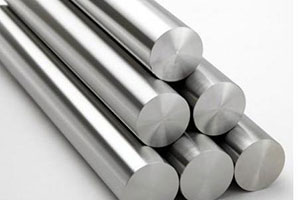As casting Professionals, we have to know what the difference is between 18-8 stainless steel vs. 304 stainless steel vs. 316-grade stainless steel. Here, We’re going to help simplify it. To let you know each detail of Here’s what you need to know about each of these three different grades.
18-8 stainless steel
What is 18-8 stainless steel? 18/8 stainless steel is 304-grade stainless steel which is also called 18-8 stainless steel, 18 8 stainless steel. Because it contains nominal 18% chromium, 8% nickel. The rest composition is remainder iron and a dozen or two other elements. The common designations include 301, 302, and 304 stainless steel.
It is the most widely used and flexible austenitic form of stainless steel. It is very resistant to corrosion and oxidation, highly durable. can be fabricated with ease. It is available in various appearances and finishes. 18-8 grade stainless steel has better resistance to corrosion than the 400 series. It can be hardened only by cold working, and it isn’t magnetic.

18-8 Stainless Steel Chemical Compositions
| Chemical Element | Carbon | Manganese | Phosphorus | Sulfur | Silicon |
| Content | 0.15 max | 2.00 max | 0.045 max | 0.030 max | 0.75 max |
| Chemical Element | Chromium | Nickel | Nitrogen | Iron | |
| Content | 18.00 | 8.00 | 0.10 max | Balance |
Features: Non-magnetic,Cannot be hardened by heat treating,Chrome-oxide surface layer,Rust resistant
Advantages and disadvantages of 18-8 Stainless Steel
18-8 stainless steel is famous for its superior corrosion resistance. But, it is still showing signs of corrosion when exposed to chlorides. such as salt. Therefore, it is not the ideal stainless steel to use for marine applications.
On the other side,18-8 grade stainless steel properties including goof property of bending and molding. This does not affect its strength and durability. This type of stainless steel is also not only cost-effective but also does not requires maintenance.
18 8 Stainless Steel Applications:
18-8 grade stainless steel is used within many different industries. Ideal for applications in highly corrosive environments, Kitchen equipment, Wheel covers, Storage tanks, Pressure piping and vessels. But it is not suitable for marine applications.
304 Grade Stainless Steel
This is basic alloy steel. It cannot be heat-hardened and is also non-magnetic. Although it is not easy to rust, it will tarnish. It also has a strong ability of resistance to the effect of various chemicals and acids.
Advantages and disadvantages of 304 Stainless Steel
The main benefit of 304 stainless steel is usually considered to be one of the strongest of the mild carbon steel available on the market. It has a high level of resistance to corrosion. It is much easier to mold than 316 stainless steel. However, like 18-8 grade stainless steel, it is easy to corrosion when exposed to saltwater.
304 Stainless Steel Applications
304 stainless steel is commonly used in the kitchen industry. Such as sinks, pans, tables. Also, 304 stainless steel is very often used in the brewing industries, dairy, food.
316 stainless steel
The 316 stainless steel offers high tensile strength.It has a high level of corrosion resistance. It is also non-magnetic. So it must be hardened through cold working. The 316 stainless steel has 2-3% molybdenum added. So its degree of corrosion resistance is higher than the 18-8 series stainless steels. The difference between 304 and 316 stainless steel is the incorporation of molybdenum of 316 reaches up to 3%. So 316 stainless steel is usually used in the surgical industry, paper pulp industry as well as in the production of dyes and chemicals.
Advantage and disadvantages of 316 Stainless Steel
316 stainless steel has higher strength and durability, corrosion resistance than 304 stainless steel. Even exposed to saltwater. But on the cost, 316 price is more expensive than 304 costs.
316 Stainless Steel Application
Due to its higher level of corrosion resistance, especially in terms of saltwater, 316 stainless steel is unsurprisingly used most frequently for marine applications. The other side is in the manufacture of chemical processing equipment, heat exchangers, furnace parts.
So now, as professional foundries, we have to know the different details of each stainless steel grade. We can not mistakenly believe that all stainless steel is the same.
What is the conlcusion of difference between 18 8 vs 304, 18-8 stainless steel vs 316 ?
We must know what the difference is between 18-8 vs 304,18-8 vs 316-grade stainless steel. Here we list out a brief comparison. Hope it is useful for you.
| Grade | Different | Applications |
| 18-8 stainless steel | This refers to the 300 series of stainless steel with chromium and nickel content in percentages. That means that an 18-8 grade fastener has 18% chromium and 8% nickel content. 18-8 type stainless steel has better resistance to corrosion than the 400 series. It can be hardened by only cold working and isn’t magnetic. | Ideal for applications in highly corrosive environments |
| 304 stainless steel | This is a basic alloy. It cannot be heat-hardened and is also non-magnetic. While this grade of stainless steel won’t rust, it will tarnish and has a strong resistance to the effect of various chemicals and acids. It is commonly used for sinks, pots, pans, tables, and similar. | 304 stainless steel is very often used in the dairy and brewing industries. |
| 316 stainless steel | This product offers high tensile strength. It has a corrosion resistance that can withstand harsh environments. It is also non-magnetic and must be hardened through cold working. The difference between type 304 and 316 stainless steel is the incorporation of molybdenum of up to 3%. | This grade of stainless steel is commonly used in the surgical industry, paper pulp industry, and in the production of dyes and chemicals. |
Stainless Steel Casting Foundry and Supplier
JC casting is a stainless steel casting Foundry and Supplier in China. We can manufacture different grades of stainless steel. Choosing the correct grade of stainless steel is essential to ensure your product quality. Now we know the difference between 18-8 stainless steel, 304, and 316-grade stainless steel. You can make a better choice for your application in terms of casting.
Kindly contact us for more information and advice on our stainless steel foundry castings. Contact us or leave a message! You will get a professional answer.
